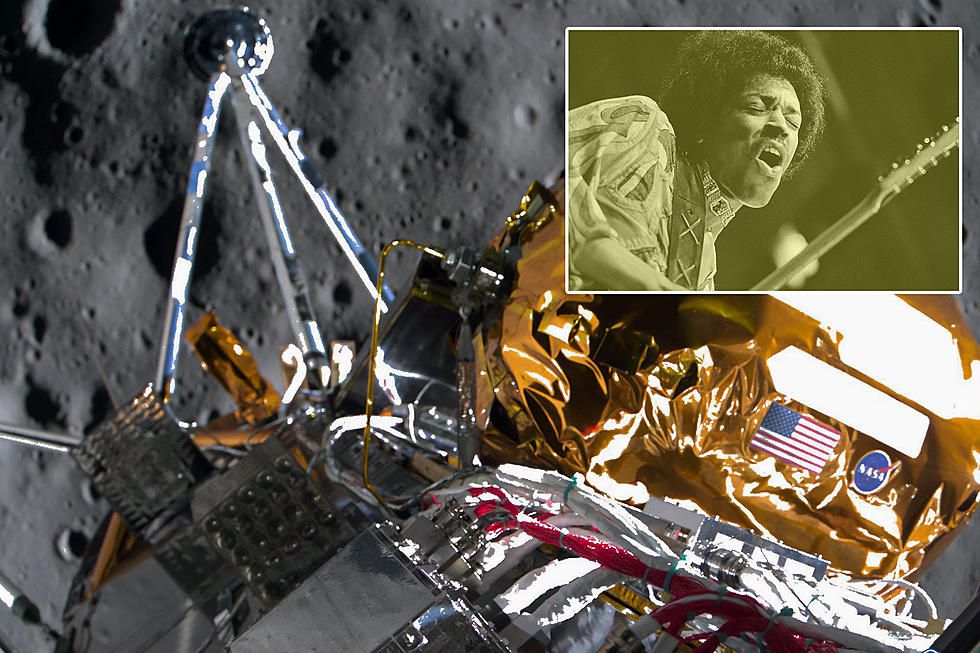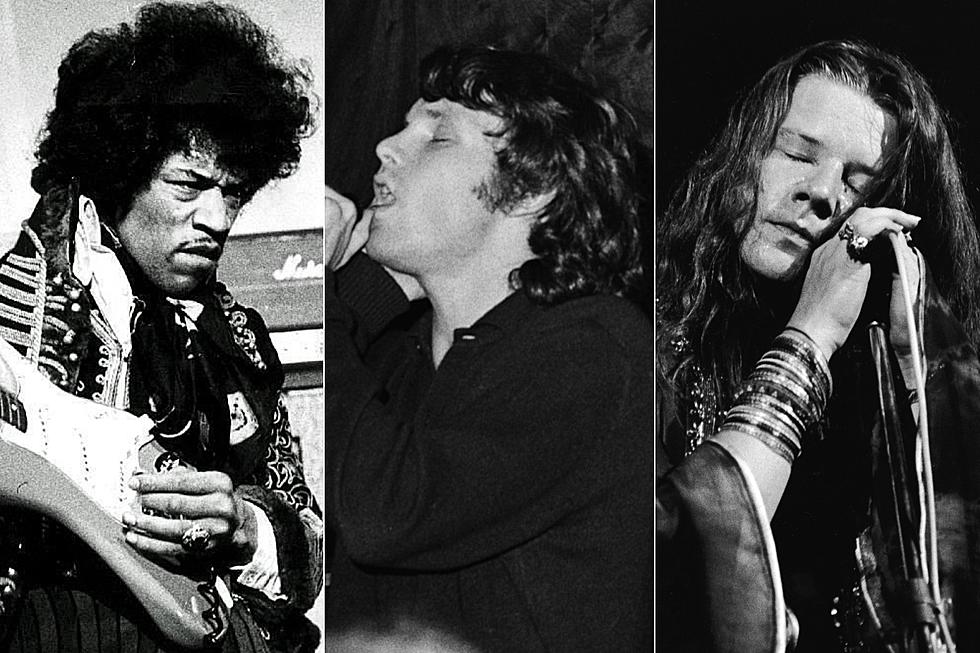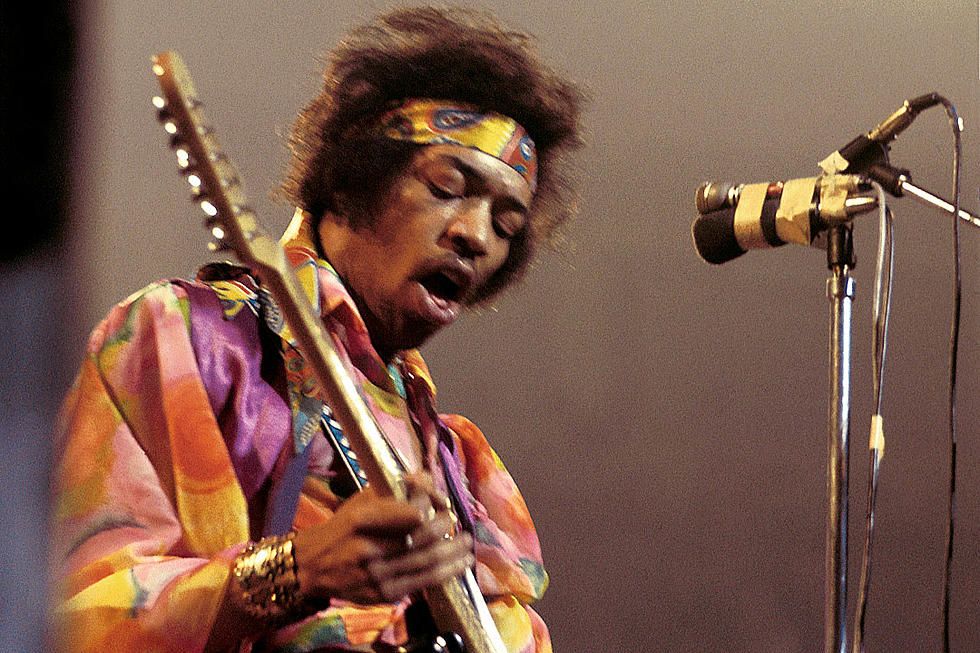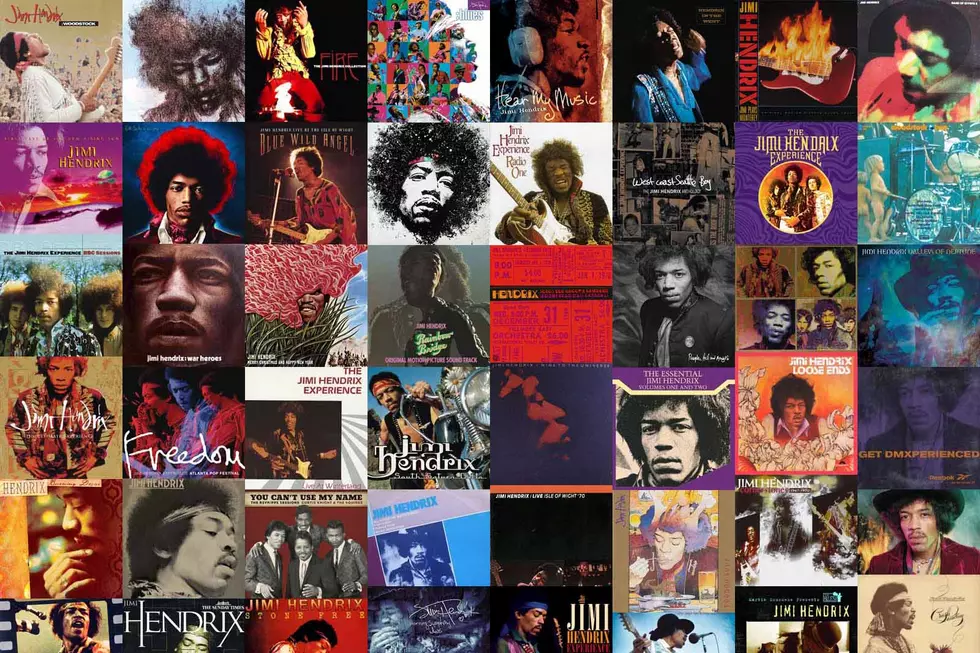
50 Years Ago: Jimi Hendrix’s Seattle Homecoming Ends in Embarrassment
One morning in 1968, Jimi Hendrix found himself in a familiar place: onstage, with a microphone, in front of a horde of teenagers. But he wasn’t able to play and he couldn’t put more than a couple of coherent words together.
The kids, unimpressed with the supposed rock star in front of them, began to heckle Hendrix. He hurried away, likely embarrassed by the event. It didn’t help that the whole thing had been his idea.
In early 1968, the Jimi Hendrix Experience had planned a big tour of the United States, capitalizing on the success of their two 1967 LPs and the frontman’s burgeoning status as a guitar god. The Experience had played all over the U.S. the previous year, but had yet to perform in Hendrix’s hometown of Seattle. Despite being announced and promoted rather hastily, the Feb. 12 gig at the city’s Center Arena sold out.
The last time Hendrix had been in Seattle, it was 1961. The high-school dropout had visited while on leave from the U.S. Army, wearing his uniform around town as he saw old friends and spent time with his father, Al, and his kid brother, Leon – 13 at the time. In the time since, Jimi had left the service, traveled the Chitlin’ Circuit as a sideman, gone to New York and then become a rock sensation in London. With support from British bandmates Noel Redding and Mitch Mitchell, 1967 had witnessed Hendrix’s ascendance as a king of psychedelic rock – a near-instant superstar made famous by Monterey Pop, “Purple Haze” and his frenetic performances.
Seven years is a long time, but there would be a whole universe of difference between the young man who had spent time in Seattle in 1961 and the flamboyant musician who was headed back in 1968. But it wasn’t like Hendrix had disowned Seattle or his family. He wrote lyrics about his dad and referenced his high school days in “Spanish Castle Magic,” named for a club south of the city.
Watch Jimi Hendrix Perform 'Spanish Castle Magic'
Reportedly, Hendrix had mixed emotions about coming to Seattle. He felt a bit of trepidation about how he would be received by his father (he mentioned to one interviewer that he was scared his dad might try to cut his hair) but also displayed an eagerness to bask in the glow of hometown adoration.
As such, he told promoter Pat O’Day that he wanted to do something special while he was in town, even though it would be a whirlwind visit (the Experience had a show booked in Los Angeles the next night). He wanted to play a free concert at the school that had seen him drop out in the fall of 1960.
“He said, ‘Pat, can you get me an assembly at Garfield High?’” O’Day recalled in 2011. “‘You know they kicked me out of there and I’d like to go there and be in an assembly and play music.'”
The promoter made the arrangements with the administration at Garfield High School, which canceled a pep rally to host a morning performance by the Jimi Hendrix Experience – a free performance by one of music’s hottest bands for about 1,200 students. The event would take place the morning after the power trio’s show at Center Arena.
That was the plan when Hendrix and his modest entourage got off the plane in Seattle on Feb. 12, greeted not only by throngs of fans and press, but also the guitarist’s family. He was surprised by the warm reception he got from his father, who had mellowed with age and appeared genuinely proud of his famous son. During an afternoon get-together at his dad' s house, Hendrix bonded with his brother Leon, gave him a guitar and invited him to hang out backstage before the night’s show.
With family and friends in the first row, Leon on the side of the stage and thousands of local fans filling the arena, the Experience’s concert was a big hit. A celebratory after party took place in Hendrix’s hotel suite, which eventually resulted in the guitarist staying up all night to play drunken games of Monopoly at the family home. And that’s where the star’s handlers found him on the morning of the 13th, ready to drive him to his assembly at Garfield High School.
Hendrix, ever prone to exaggeration, might have increased the grandeur of the school appearance in the lead-up to his trip to Seattle. Although news reports from the time suggest that the rock star was to be given an honorary diploma and a key to the city at the assembly, those involved remember it differently. These details might have been inventions of Hendrix’s own myth-making, as he made the event into something larger.
Instead the assembly turned out to be even smaller than planned. O’Day wasn’t able to rouse Mitchell or Redding that morning; he wasn't able to locate the equipment truck with the band’s gear, either. It was just as well – a hungover Hendrix wasn’t in performance-ready shape anyway.
“He was not capable, or able, to play, or really to speak,” Garfield Principal Frank Fidler recalled in Charles R. Cross’s Roomful of Mirrors.
In an attempt to salvage the assembly, O’Day came up with the idea of hosting a Q&A session between Hendrix and the students. While this might have proved thrilling to the guitarist’s fans, it turned out that there weren’t many of those in attendance at Garfield. The majority of the students were African-American. Although Hendrix was too, his music was largely being promoted on (white) rock radio and avoided by the black-leaning R&B stations. Most of the kids only had a vague idea of who this hippie guy was.
Listen to Jimi Hendrix's 'Purple Haze'
It didn’t help that the star, who could be so charming, was sleep-deprived, hungover and wide-eyed in the face of this neutral audience. Retreating into his shyness, Hendrix mumbled terse comments (it had been “2,000 years” since he had last been in high school, he wrote “Purple Haze” about the school’s colors) before offering a final thought to a cheerleader’s question about how he writes a song.
“Right now, I’m going to say goodbye to you, and go out the door, and get into my limousine, and go to the airport,” he said. “And when I get out the door, the assembly will be over, and the bell will ring. And when I hear that bell ring, I’ll write a song. Thank you very much.”
In less than five minutes, the assembly – this grand gesture that he had intended – was over, leaving Hendrix feeling sick, shy and sad. He hoped to return to Garfield High as a hero and instead all of his old anxieties came flooding back. “I just can’t face an audience without my guitar,” he told journalist Patrick MacDonald.
Before long, Hendrix and his bandmates were back on a plane, ready to play another gig that night. The next time he appeared before a crowd, he was holding a guitar.
25 Manic and Mind-Blowing ‘Are You Experienced’ Facts
More From Ultimate Classic Rock









